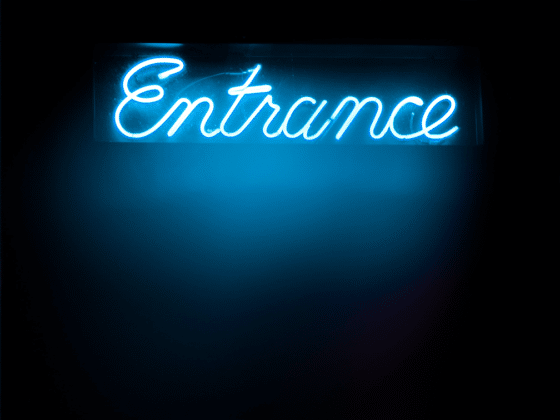Effective and empathetic customer communication is crucial for successful events. It not only drives sales but also fosters satisfied and loyal customers.
The issues faced by Ticketmaster illustrate the importance of good communication. Dynamic pricing led to higher prices, which might have been better received with improved communication. Most customers can accept price increases if communicated well, which is often about the right tone and wording.
In this article, we provide tips for communicating with customers in three common scenarios, along with ready-made text templates to save you time and ensure your messages are well received.
Want more success in event management? Here are the best tips!
Leverage our expert knowledge to optimize your events!

1. Price increase
Price increases are never appreciated but sometimes unavoidable. Customers often react skeptically or angrily, especially if they feel the increases are unreasonable. Therefore, it’s crucial to communicate the reasons transparently and highlight the added value.
Why this approach?
Transparency creates trust. When customers understand why a price increase is necessary and what benefits they will gain, they are more likely to accept it. By mentioning specific improvements, such as better artists, higher quality technology, or additional services, you show customers that their money is well invested and that they can expect a better experience. This communication alleviates customer concerns and demonstrates that you take their satisfaction seriously
Ideal response // Template for communication
Subject: Important information about your event Dear [name of customer], we would like to inform you about an upcoming change. From [date] the ticket price for [name of event] will be increased from [old price] to [new price]. We have made this decision in order to continue to offer you a first-class event experience. The price increase will allow us to realise [examples of improvements such as better artists, improved technology or additional services]. We hope for your understanding and look forward to welcoming you to [name of event]. Best regards, [your name] [contact details]
2. Event cancellations
Event cancellations are frustrating for everyone involved. Clear, honest, and empathetic communication is essential. Customers should be informed personally before they hear it from other sources, ensuring their concerns are understood and addressed.
Why this approach?
Honesty and empathy maintain customer trust. If you inform them immediately and transparently about a cancellation and explain the reasons openly, customers will feel respected and taken seriously. Additionally, offering an immediate ticket refund demonstrates appreciation and good customer service. Alternatively, offering vouchers is an excellent way to secure revenue and remain in the customer’s mind. Both actions show you recognize the inconvenience and are taking steps to minimize it, helping to reduce the negative impact and maintain customer loyalty
Ideal response // Template for communication
Subject: Cancellation of [name of event] on [date] Dear [name of customer], Unfortunately, we have to inform you that the event [name of event], which was to take place on [date], has to be cancelled. The reason for this is [honest explanation, e.g. unexpected organisational challenges, health concerns]. We deeply regret this decision and apologise for any inconvenience caused. You will of course receive a full conversion of the ticket into a voucher. As a small add-on, you will receive a glass of sparkling wine per person when booking the alternative event - this is the exclusive voucher code "SEKT-" & your surname in small letters. If you have any questions, please do not hesitate to contact us. With best regards, [your name] [contact details]
3. Response to bad reviews
Negative reviews can be painful, but they offer an opportunity to improve and demonstrate your customer-oriented approach. Many organizers tend to ignore such reviews or react defensively, which is often counterproductive.
Why this approach?
By responding proactively and constructively to negative reviews, you show that you value customer feedback and are willing to address concerns. This can positively influence the opinion of the dissatisfied customer and shows potential customers that you take problems seriously and strive to improve continuously. This transparency and commitment to improvement strengthen customer trust and loyalty.
Ideal response // Template for communication
Subject: Thank you for your feedback on [name of event] Dear [name of customer], Thank you for your honest feedback on [name of event]. We are sorry to hear that you were not satisfied. Your feedback is very important to us and helps us to continuously improve our events. We would like to learn more about your experience and invite you to contact us directly to discuss the issue. Our goal is to exceed your expectations in the future. Thank you again for taking the time to share your feedback with us. Best regards, [your name] [contact details]
Event success through trust
Clear and empathetic customer communication is key to your event’s success. By transparently explaining price increases, sensitively communicating event cancellations, and responding constructively to negative reviews, you show customers they matter. This strengthens trust in your company and solidifies your position as a market expert.
Implement the golden rules of customer communication and experience their positive impact on your event’s success. This communication strategy will help you manage crises better and ensure long-term customer satisfaction and loyalty. Such commitment and transparency make your company stand out and establish you as a trustworthy organizer.
Our event experts have the perfect digital solution for ticketing, catering, access, or a combination of all three. Get to know us and explore our solutions with no obligation.

Ticket price increases and concert cancellations: current challenges and possible solutions
READ NOW
